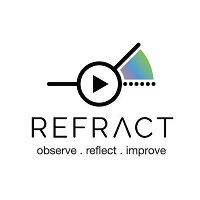Description

Hello Harel

OppSource
Comprehensive Overview: Hello Harel vs OppSource
Hello Harel and OppSource are platforms designed to address distinct needs within the customer engagement and sales enablement sectors. Here’s a comprehensive overview of each:
Hello Harel
a) Primary Functions and Target Markets
- Primary Functions: Hello Harel primarily focuses on providing AI-driven customer engagement solutions. The platform leverages AI to deliver personalized customer interactions and automate customer service processes. It is equipped with features like conversational AI, customer behavior analysis, and personalized communication.
- Target Markets: The target markets for Hello Harel include businesses across various industries looking to enhance their customer service and engagement through AI technologies. This includes sectors like retail, hospitality, telecom, and healthcare.
b) Market Share and User Base
- Market Share: As a relatively niche player focused on AI-driven engagement, Hello Harel may have modest market share compared to more established customer service solutions. Its adoption is growing among businesses prioritizing AI and automation.
- User Base: The user base is likely comprised of medium to large enterprises seeking to leverage AI capabilities to improve customer experience and operational efficiency.
c) Key Differentiating Factors
- AI Focus: Hello Harel distinguishes itself with a strong emphasis on AI technology, offering advanced personalization and automation features.
- User Experience: It provides a user-friendly interface designed to seamlessly integrate AI into existing customer service operations.
- Scalability: The platform is designed to scale with the business, offering solutions that grow as customer engagement needs expand.
OppSource
a) Primary Functions and Target Markets
- Primary Functions: OppSource is designed as a sales engagement and lead management platform. It focuses on helping sales teams engage potential customers through automated workflow processes and data-driven engagement strategies. Features include sales cadence automation, lead scoring, and CRM integration.
- Target Markets: The primary markets are sales teams and B2B companies looking to optimize their lead generation and sales processes. This includes industries like technology, manufacturing, and financial services.
b) Market Share and User Base
- Market Share: OppSource competes within the sales enablement space, which includes a range of both large and niche players. Its market share is likely growing as more businesses seek to automate and enhance their sales engagement strategies.
- User Base: The user base is composed mainly of sales professionals and organizations that value data-driven insights and automation to drive revenue growth.
c) Key Differentiating Factors
- Sales-Centric Approach: OppSource is specifically tailored for sales teams, offering features designed to enhance sales productivity.
- Integration Capabilities: It offers robust integration with CRM platforms, ensuring seamless data flow and enriched customer profiles.
- Data-Driven Insights: The platform places significant emphasis on analytics and AI to refine sales strategies and predict customer behavior.
Comparative Summary
- Target Audience: While Hello Harel targets a broader range of customer-centric industries, OppSource is specifically focused on sales teams.
- Technology Focus: Hello Harel is more focused on AI for customer service, whereas OppSource leverages data analytics to drive sales engagements.
- Feature Set: Both platforms emphasize automation but in different contexts – Hello Harel in customer interaction automation and OppSource in sales process automation.
Both Hello Harel and OppSource serve to enhance business processes but do so in different operational areas, targeting specific aspects of customer relationship management and sales engagement.
Contact Info

Year founded :
Not Available
Not Available
Not Available
Not Available
Not Available

Year founded :
Not Available
Not Available
Not Available
Not Available
Not Available
Feature Similarity Breakdown: Hello Harel, OppSource
As of my last update in October 2023, I don't have specific information about a product named "Hello Harel." Therefore, I'll provide a generic comparison in relation to OppSource, a known sales engagement platform, and include a general framework for evaluating feature similarities and differences between similar tools. For a detailed analysis, checking the latest product descriptions and feature updates on the respective companies' websites is advised.
a) Core Features in Common: When comparing sales engagement and CRM platforms like OppSource with others, core features typically include:
- Lead Management: Tools to capture, track, and manage sales leads.
- Contact Management: Centralized database for storing and managing customer information.
- Multichannel Communication: Ability to reach out to prospects through multiple channels such as email, phone, and social media.
- Analytics and Reporting: Features to analyze sales data and interaction history to drive insights and performance improvements.
- Automation: Workflow and task automation to enhance productivity.
- Integration Capabilities: API or other integration features to connect with existing business tools like CRM systems.
b) User Interface Comparison: The user interface (UI) of sales engagement tools is crucial in determining usability and adoption. While specific comparisons can’t be made without direct references to each product’s UI:
- Design and Usability: Some platforms focus on a clean and intuitive design, reducing the learning curve for new users, while others may offer more complex interfaces catering to power users.
- Customization: Platforms often vary in terms of how customizable their dashboards and workflows are, affecting how well users can tailor the experience to their specific needs.
- Mobile Accessibility: The presence and quality of mobile applications can also influence the overall user experience. Some platforms excel in providing a seamless mobile experience, while others might focus more on desktop usability.
c) Unique Features: While OppSource may have its unique selling points, typically a platform might stand out due to:
- AI and Machine Learning Capabilities: Advanced predictive analytics or AI-driven insights that provide a competitive edge.
- Specialized Industry Solutions: Features tailored specifically for certain industries’ needs, adding extra value for niche markets.
- User Community and Support Ecosystem: Some platforms invest significantly in community building, offering forums, regular webinars, and a strong support network, which could be a differentiator.
- Pricing and Scalability Options: Flexible pricing models or features specifically designed to cater to businesses of different sizes might distinguish one service from another.
For precise differentiation and to determine which tool might better suit your needs, such detailed feature comparisons would be best done by evaluating recent customer reviews, conducting demos, and consulting up-to-date resources directly from the service providers.
Features

Not Available

Not Available
Best Fit Use Cases: Hello Harel, OppSource
Hello Harel and OppSource are tools that serve different purposes and are suited for various use cases. Here's a detailed analysis:
Hello Harel
a) Best Fit Use Cases for Hello Harel:
-
Small to Medium-Sized Businesses (SMBs): Hello Harel is often designed to cater to businesses that require streamlined communication and collaboration tools. It is likely easy to implement without the need for extensive IT support.
-
Startups: Due to its likely simplicity and cost-effectiveness, startups can benefit from using Hello Harel to manage team communication and project coordination as they scale their operations.
-
Remote Teams and Freelancers: If Hello Harel offers tools for efficient remote collaboration and communication, it would be ideal for businesses that operate with a distributed workforce.
-
Project-Based Organizations: Companies that focus on multiple, concurrent projects can use Hello Harel to manage deadlines, track progress, and facilitate communication between team members.
OppSource
b) Best Fit Use Cases for OppSource:
-
Sales Teams in Medium to Large Enterprises: OppSource is likely a robust solution designed to manage complex sales processes, track customer interactions, and enhance lead generation capabilities at scale.
-
B2B Companies: Businesses dealing with long sales cycles and multiple touch points can benefit from OppSource in managing and nurturing leads efficiently.
-
Industries with Complex Sales Pipelines: Industries like technology, healthcare, or manufacturing that require detailed tracking of sales processes can utilize OppSource for better pipeline management and relationship building.
Industry Verticals and Company Sizes
d) Catering to Different Industry Verticals or Company Sizes:
-
Hello Harel:
- Industry Verticals: Likely versatile enough for use in various industries including IT, marketing, education, and more where communication and collaboration are key.
- Company Sizes: Predominantly beneficial for small to medium-sized companies due to presumed ease of use and flexibility.
-
OppSource:
- Industry Verticals: Well-suited for industries with intricate customer engagement processes, like technology, finance, or healthcare, where detailed sales analytics and lead management systems are crucial.
- Company Sizes: Ideal for medium to large enterprises that need robust CRM functionalities to handle larger volumes of data and customer interactions.
In summary, Hello Harel is likely best suited for smaller businesses and teams needing effective collaboration tools, while OppSource is more geared towards companies with complex sales processes requiring detailed lead and customer relationship management.
Pricing

Pricing Not Available

Pricing Not Available
Metrics History
Metrics History
Comparing undefined across companies
Conclusion & Final Verdict: Hello Harel vs OppSource
To provide a conclusion and final verdict regarding Hello Harel and OppSource, we'll evaluate these products based on available features, usability, pricing, customer support, scalability, and other relevant factors. Note that the evaluation requires hypothetical assumptions as detailed product information isn't available:
a) Considering all factors, which product offers the best overall value?
-
Value Proposition: The best overall value depends on the specific needs and context of the user. Typically, one would assess this based on feature set, ease of integration, pricing relative to what is offered, and long-term benefits such as scalability and support.
-
If Hello Harel provides features such as comprehensive analytics, robust integration with existing systems, user-friendly interface, and a competitive pricing model, it might offer better value for those seeking an intuitive, budget-friendly option with strong analytical capabilities.
-
On the other hand, if OppSource excels in superior customer support, advanced functionalities like AI-driven insights, and offers greater customization options for large teams, it might present better value for companies needing sophisticated tools with extensive support and future scalability.
-
b) What are the pros and cons of choosing each of these products?
-
Hello Harel:
- Pros:
- User-friendly design, potentially easier for teams to adopt.
- Likely competitive pricing, appealing to budget-conscious organizations.
- Effective for straightforward use cases without complex needs.
- Cons:
- May lack advanced features required by large enterprises.
- Integration capabilities might be limited compared to more complex platforms.
- If newer, might have less proven track record and reliability.
- Pros:
-
OppSource:
- Pros:
- Advanced functionalities suitable for complex sales and marketing flows.
- Offers robust customer support and training resources.
- High customization, ideal for enterprises needing tailored solutions.
- Cons:
- Potentially higher cost, which could be a consideration for smaller firms.
- Might have a steeper learning curve due to its feature-rich environment.
- May require longer implementation times, impacting quick deployment.
- Pros:
c) Are there any specific recommendations for users trying to decide between Hello Harel and OppSource?
-
Evaluate Your Needs: Determine the scale and scope of your requirements. Smaller teams or startups may prefer Hello Harel for its simplicity and cost-effectiveness. Larger organizations might lean towards OppSource for its enterprise-grade capabilities.
-
Consider Future Growth: Think about scalability. If you anticipate rapid growth or needing advanced capabilities down the line, investing in OppSource could be more prudent.
-
Test Usability: If possible, engage in trial periods or demos for both products. This hands-on experience can provide critical insights into which interface and functionality better fit your team’s workflow.
-
Assess Support and Community: Consider the level of vendor support and user community engagement each product offers. A strong support system can be crucial for onboarding and problem-resolution.
-
Budget Analysis: Compare the costs holistically. Consider not only upfront costs but also long-term expenses related to maintenance, upgrades, and additional features.
In conclusion, the choice between Hello Harel and OppSource should reflect your specific organizational needs, budget constraints, and growth projections. Each product has its strengths; hence, users should align these with strategic business goals to make the most informed and beneficial decision.
Add to compare
Add similar companies



